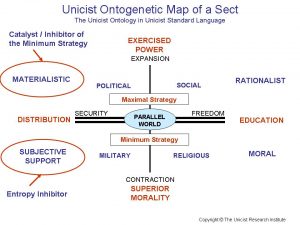Exercise: How do Fundamentalists build Sects?
Sectarian behavior is the dominant characteristic of fundamentalism. Sects are not necessarily religious. There are all kinds of sects: religious, military, political and social sects.
 To understand fundamentalism it is necessary to find our own fundamentalist behavior. The one who considers that never behaved as one should buy a mirror, because he is probably endangered by the question and is acting as one at the moment.
To understand fundamentalism it is necessary to find our own fundamentalist behavior. The one who considers that never behaved as one should buy a mirror, because he is probably endangered by the question and is acting as one at the moment.
First step:
The need of a parallel reality
The first step to build a sect is to understand that one needs to create a parallel reality and find people who have the need of the particular reality one is creating.
Second step: Finding the members
The second step is to identify the potential members of the sect. They must be “survivors”. Survivors are individuals who cannot adapt to an environment because of psychological, spiritual, organic or materialistic reasons.
Survivors are everywhere, beginning with marginal individuals and ending in the upper class. One has to know that a survivor is a person who acts like a “black hole” absorbing all the energy he can.
Survivors are “infinite” takers. Nothing ever suffices. To avoid the fear of death, which dominates survivors, they are keepers; they take just for the pleasure to have. Their fear of failure is so dominant that they gather everything, “just in case…”
Third step: Defining the sect model
There are many possible models. The success of a sect is given by the consistency of the sect model with the needs of its members.
The unicist ontology of a sect describes the nature of sects. They all have in common one simple characteristic:
Fundamentalism
Sects are fundamentalistic and fundamentalists always belong to a sect, including the individualistic ones.
Sects are functional to themselves and their members. They create a parallel world with parallel rules. This parallel rules make them powerful if they succeed in the “survivors-raising” process.
Sects require the management of four central concepts:
- Power
- A superior moral
- An Education – indoctrination model
- A benefit sharing model
Peter Belohlavek
NOTE: The Unicist Research Institute was the pioneer in using the unicist logical approach in complexity science research and became a private global decentralized leading research organization in the field of human adaptive systems. It has an academic arm and a business arm.